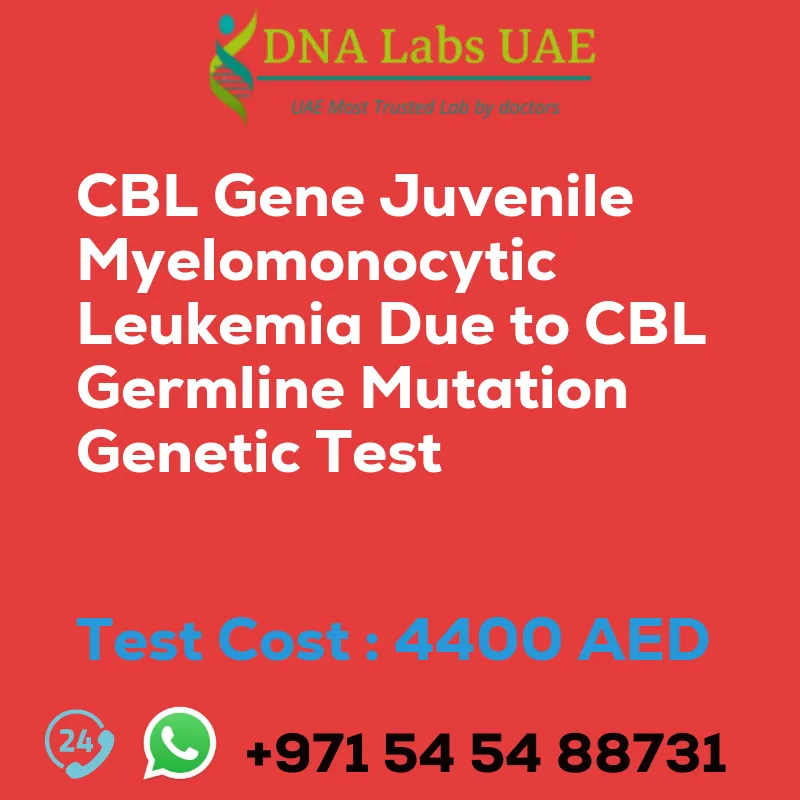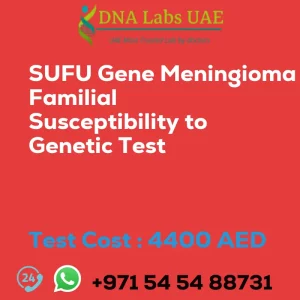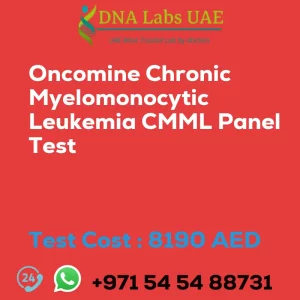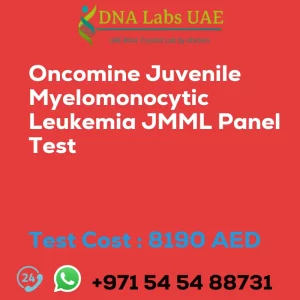CBL Gene Juvenile myelomonocytic leukemia due to CBL germline mutation Genetic Test
Test Name: CBL Gene Juvenile myelomonocytic leukemia due to CBL germline mutation Genetic Test
Components: CBL gene
Price: 4400.0 AED
Sample Condition: Blood or Extracted DNA or One drop Blood on FTA Card
Report Delivery: 3 to 4 Weeks
Method: NGS Technology
Test type: Cancer
Doctor: Oncologist
Test Department: Genetics
Pre Test Information: Clinical History of Patient who is going for CBL Gene Juvenile myelomonocytic leukemia, due to CBL germline mutation NGS Genetic DNA Test. A Genetic Counselling session to draw a pedigree chart of family members affected with CBL Gene Juvenile myelomonocytic leukemia, due to CBL germline mutation NGS Genetic DNA Test gene CBL
Test Details:
CBL gene is a gene that codes for a protein involved in regulating cell growth and division. Mutations in this gene have been associated with various types of cancer, including juvenile myelomonocytic leukemia (JMML). Juvenile myelomonocytic leukemia is a rare blood cancer that primarily affects children. It is characterized by the excessive production of immature white blood cells called myelomonocytes, leading to bone marrow failure and other symptoms.
NGS (Next-Generation Sequencing) genetic testing is a technique used to analyze multiple genes simultaneously, providing a comprehensive view of an individual’s genetic makeup. In the case of CBL gene mutations, NGS can detect specific alterations in the gene that may be associated with juvenile myelomonocytic leukemia.
NGS genetic testing can help identify individuals who have a germline (inherited) mutation in the CBL gene, which may increase their risk of developing JMML or other related cancers. It can also be used to guide treatment decisions and provide information about prognosis.
If a germline CBL mutation is detected through NGS genetic testing, it may prompt further medical management, such as increased surveillance for cancer development, genetic counseling for family members, or targeted therapies if available.
It’s important to note that genetic testing should always be done in consultation with a healthcare professional or genetic counselor, who can provide appropriate guidance and interpretation of the results.
| Test Name | CBL Gene Juvenile myelomonocytic leukemia due to CBL germline mutation Genetic Test |
|---|---|
| Components | |
| Price | 4400.0 AED |
| Sample Condition | Blood or Extracted DNA or One drop Blood on FTA Card |
| Report Delivery | 3 to 4 Weeks |
| Method | NGS Technology |
| Test type | Cancer |
| Doctor | Oncologist |
| Test Department: | Genetics |
| Pre Test Information | Clinical History of Patient who is going for CBL Gene Juvenile myelomonocytic leukemia, due to CBL germline mutation NGS Genetic DNA Test. A Genetic Counselling session to draw a pedigree chart of family members affected with CBL Gene Juvenile myelomonocytic leukemia, due to CBL germline mutation NGS Genetic DNA Test gene CBL |
| Test Details |
CBL gene is a gene that codes for a protein involved in regulating cell growth and division. Mutations in this gene have been associated with various types of cancer, including juvenile myelomonocytic leukemia (JMML). Juvenile myelomonocytic leukemia is a rare blood cancer that primarily affects children. It is characterized by the excessive production of immature white blood cells called myelomonocytes, leading to bone marrow failure and other symptoms. NGS (Next-Generation Sequencing) genetic testing is a technique used to analyze multiple genes simultaneously, providing a comprehensive view of an individual’s genetic makeup. In the case of CBL gene mutations, NGS can detect specific alterations in the gene that may be associated with juvenile myelomonocytic leukemia. NGS genetic testing can help identify individuals who have a germline (inherited) mutation in the CBL gene, which may increase their risk of developing JMML or other related cancers. It can also be used to guide treatment decisions and provide information about prognosis. If a germline CBL mutation is detected through NGS genetic testing, it may prompt further medical management, such as increased surveillance for cancer development, genetic counseling for family members, or targeted therapies if available. It’s important to note that genetic testing should always be done in consultation with a healthcare professional or genetic counselor, who can provide appropriate guidance and interpretation of the results. |








